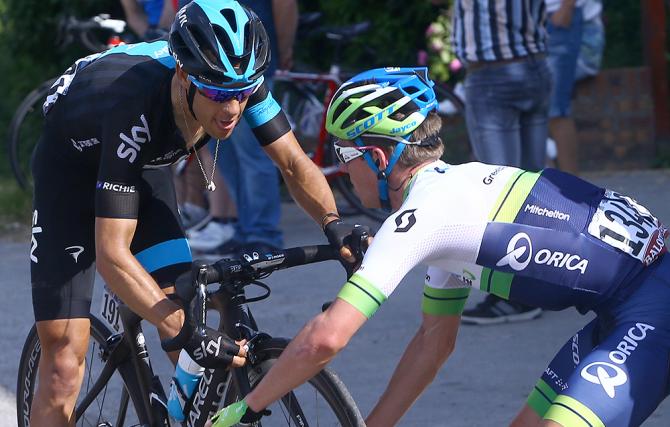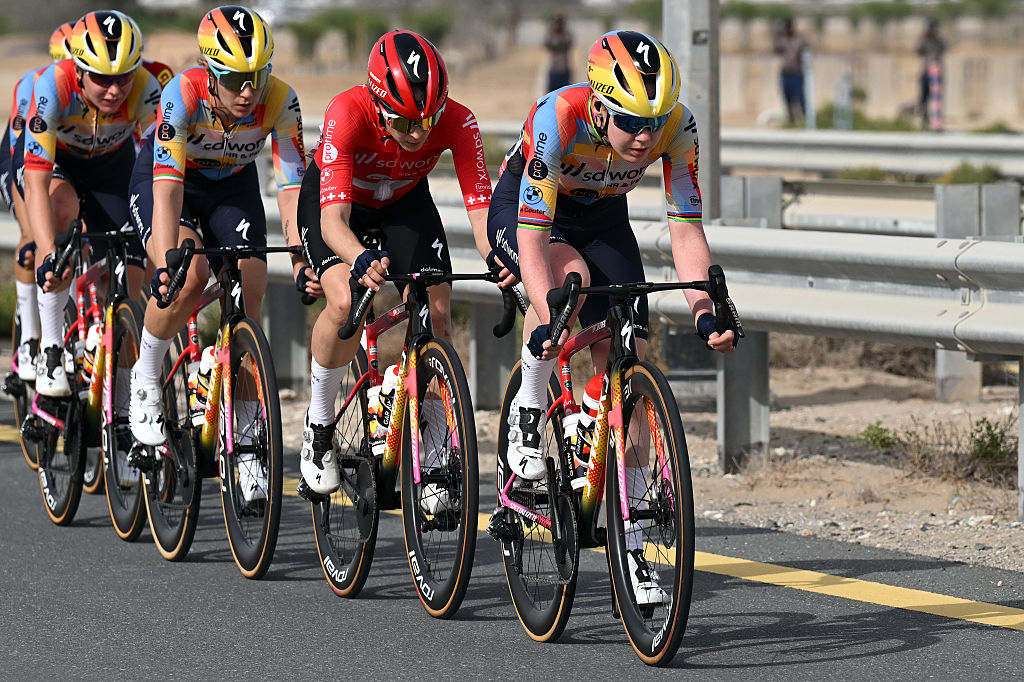Opinion: Porte and Clarke well-intentioned but rightly penalised
Rules of the sport there to be followed
The latest race content, interviews, features, reviews and expert buying guides, direct to your inbox!
You are now subscribed
Your newsletter sign-up was successful
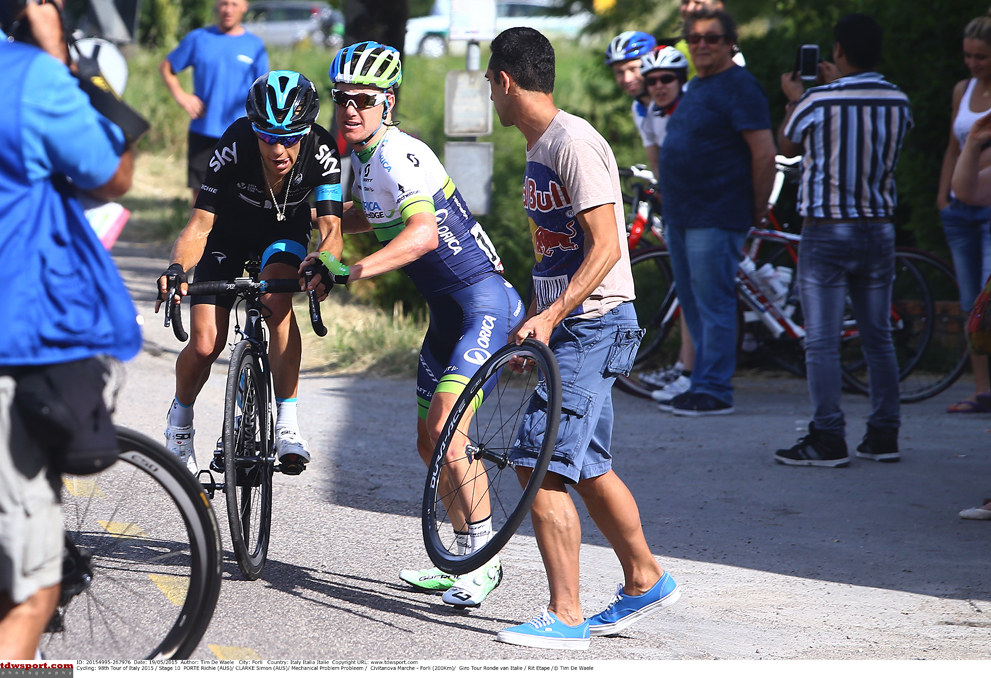
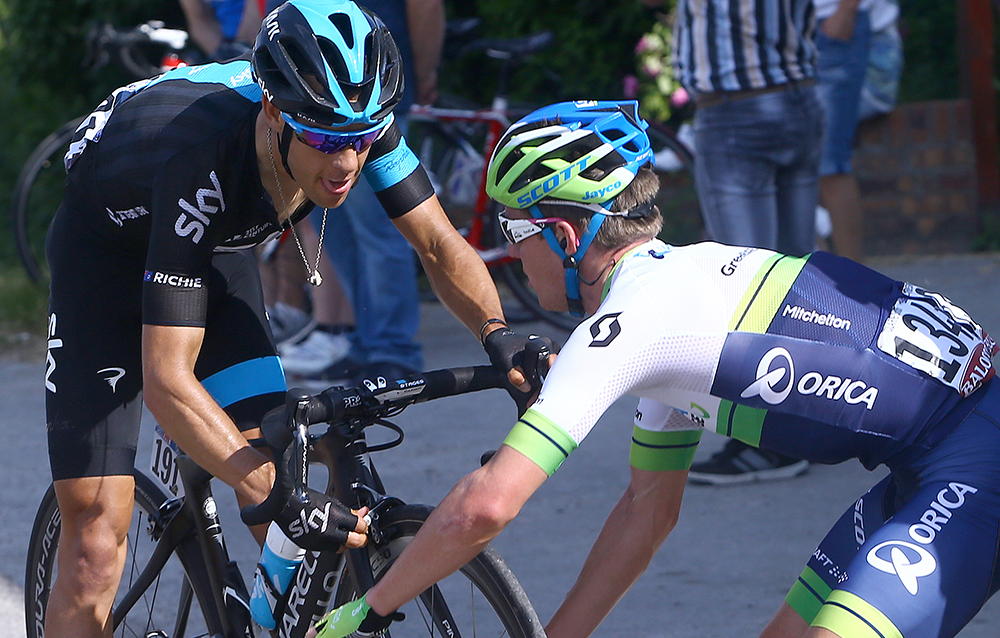
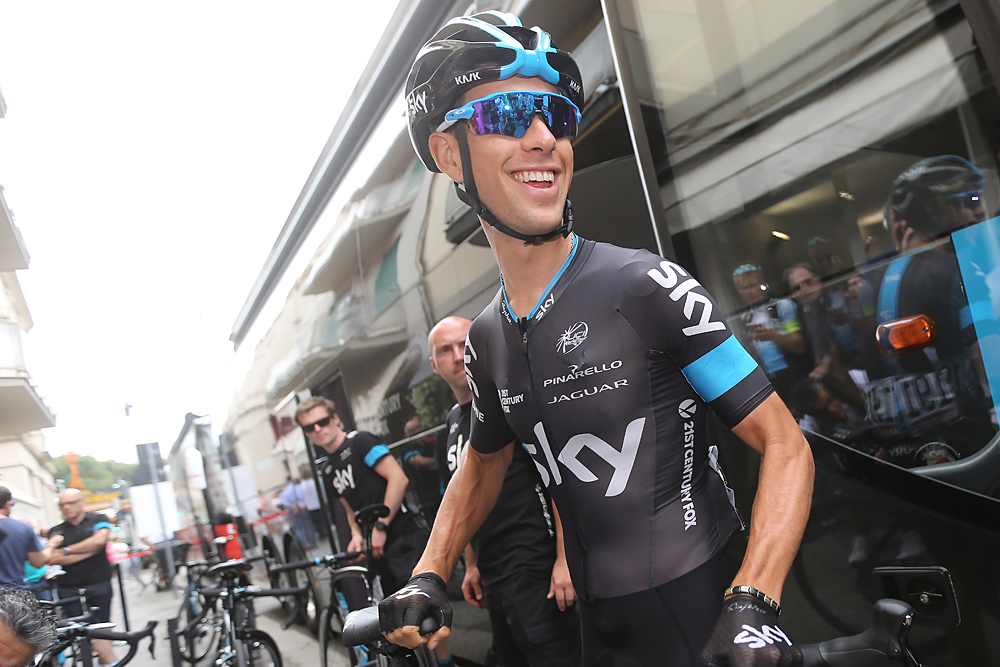
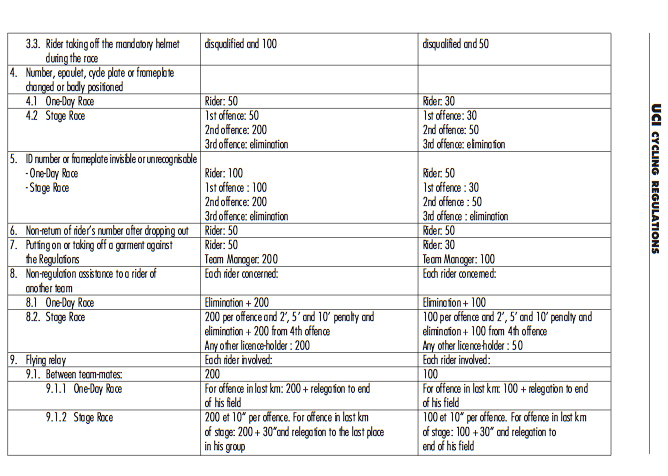
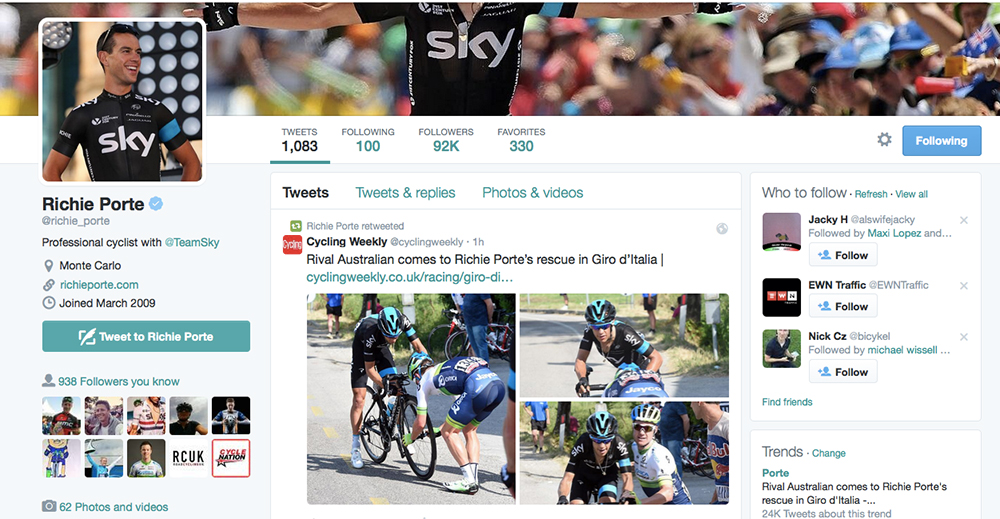
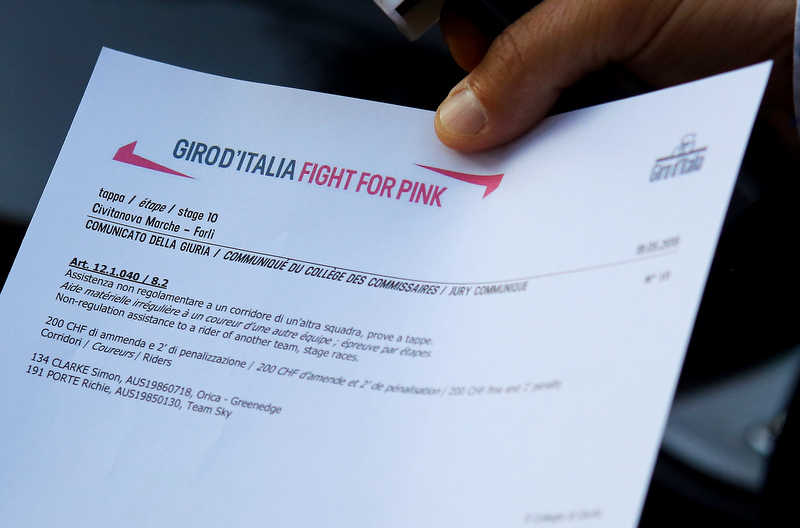
Harsh but fair. A cliché, perhaps, but one that seems fairly apt at this point. Richie Porte's punishment on stage 10 of the Giro d'Italia must seem like a bitter pill to swallow, but one that was properly prescribed.
Giro d’Italia: Porte loses time to Contador and Aru with late puncture on stage 10
Aru and Uran benefit from Porte’s misfortune at Giro d’Italia
Giro d'Italia: Richie Porte docked two minutes
Brailsford on Porte’s wheel change: The 'spirit of the law' has not been recognised
Contador expresses sympathy for Porte after Sky rider docked time
Vegni: Rule had to be applied in Porte case
Porte: Team Sky are fired up to gain back time at Giro d'Italia
Robert Millar: Clarke's behaviour in handing Porte a wheel should be applauded
First of all, it is worth saying that Porte has every reason to feel aggrieved. To puncture at such an inopportune moment is bad luck enough without being docked two extra minutes, all when the race had been shaping up so favourably.
If he wasn't aware of the rule against inter-team wheel changes, it is particularly devastating. Even if he was aware, it was surely a heat of the moment call – a panicked need for action before any more valuable seconds slipped through his fingers – rather than a calculated act of cheating.
Viewers have every right to feel sorry for him, too. But there seem to be no grounds to rally against his punishment, which was ultimately a fair application of the rules. The rule is clearly stated in the UCI regulations, and its grounds are understandable; measures have to be in place to prevent collusion in certain pockets of the peloton. The race commissaires in this case were left with no choice.
From fans to journalists and former riders, the predominant reaction was disbelief at a moment of sportsmanship going punished. But this wasn't true sportsmanship. Sportsmanship is fair play; an act of respect between opponents. It is easing off when your closest rival's chain drops, or slowing the peloton when a rival is stranded behind, his tyres studded with tacks. Sportsmanship plays a role in cycling tradition – as, of course, does flagrant cheating – but what we saw yesterday was something different.
It was an act of friendship – one mate lending another a helping hand. Porte himself tweeted immediately after the stage: "If that's not Aussie mate ship them what is?" Clarke also said he just "tried to help a friend".
Simon Clarke helping Richie Porte get the new wheel straight
The latest race content, interviews, features, reviews and expert buying guides, direct to your inbox!
Well-intentioned, no doubt, but it seems to encapsulate why, ultimately, it is right that the pair were penalised. The implication is that Clarke wouldn't have given his wheel up to a rider who didn't happen to be his mate. As some have questioned, if he saw Fabio Aru, for example, in a similar predicament, would he have done the same?
Porte profited by virtue of that relationship, which surely constitutes an unfair advantage. Yes, he did so to cancel out a slice of undeserved ill fortune, but he was privileged in the circumstances nonetheless.
That's why the rule should be in place and why it should be enforceable. A world where Porte goes unpunished is one where the well-connected prosper and where allegiances based on friendship and nationality multiply, opening the door for arrangements to be made and deals to be cut.
Such allegiances have permeated the sport in the past, and still do today, but it's the principle that counts. Certain rules exist to protect the integrity of the sport, even if Porte and Clarke didn't set out to undermine that integrity. Calls were made for the commissaires to exercise common sense, but if an exception were to be made here on subjective grounds the UCI would be setting a dangerous precedent. Collusion might in the future be veneered by innocuousness.
This ties in with another argument – that of the UCI being inconsistent in its application of its rulebook. Why punish these two when tens of riders are allowed to sneak through a level crossing at Paris-Roubaix, and when sticky bottles are commonplace? If one rule is going to be adhered to so stringently, then why should that not be the case for all others?
There can be no criticisms of that line of thought but it does not justify sidestepping the regulations on this particular occasion. We can vent our frustration at such inconsistency; it is an issue – though far from the most pressing – that the UCI must address on a more general level. However, Porte's case, taken in and of itself, is one where a justifiable rule was correctly enforced.
In the end, we can all feel for him, but there can be no complaints.
Patrick is a freelance sports writer and editor. He’s an NCTJ-accredited journalist with a bachelor’s degree in modern languages (French and Spanish). Patrick worked full-time at Cyclingnews for eight years between 2015 and 2023, latterly as Deputy Editor.
